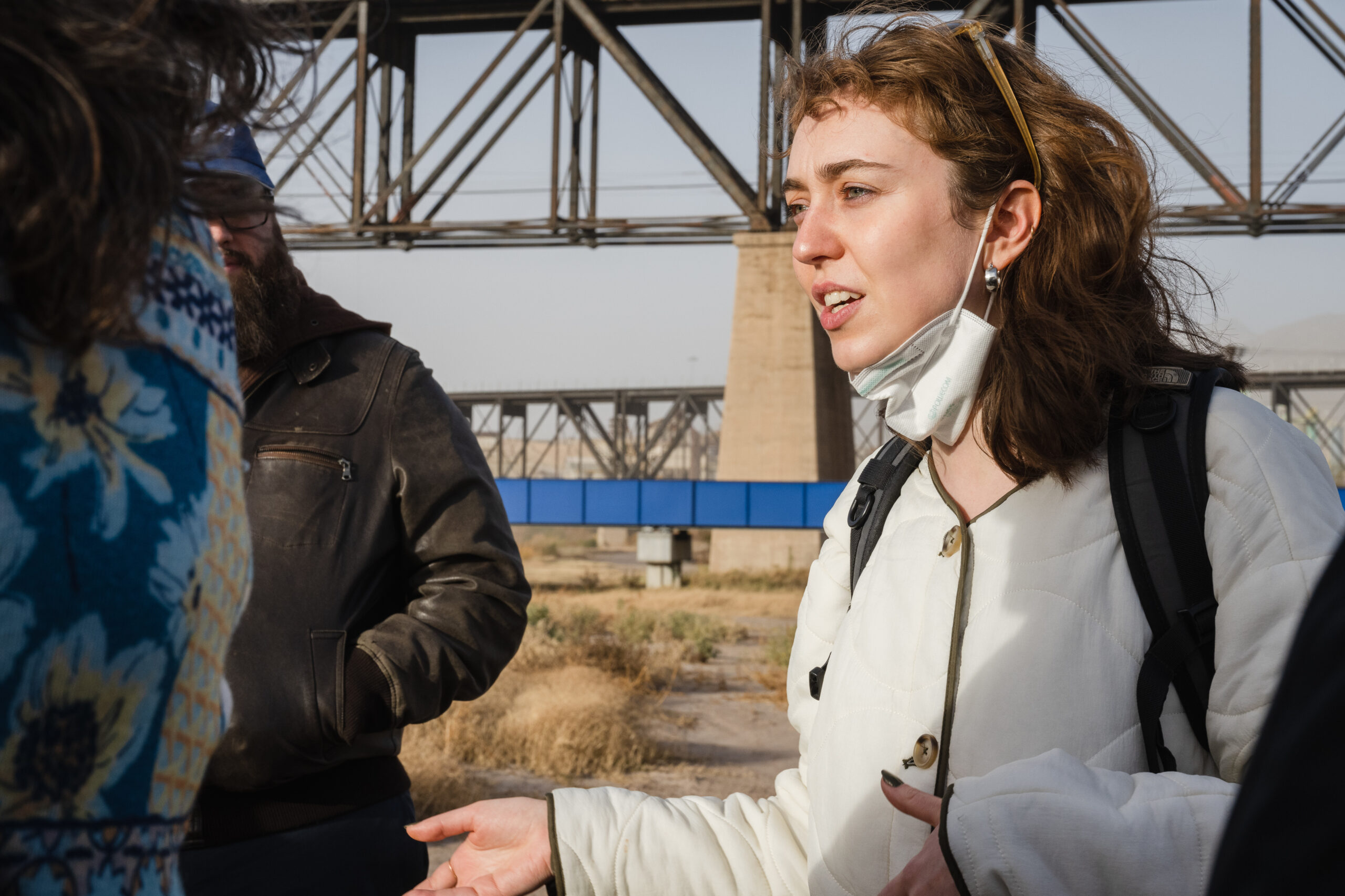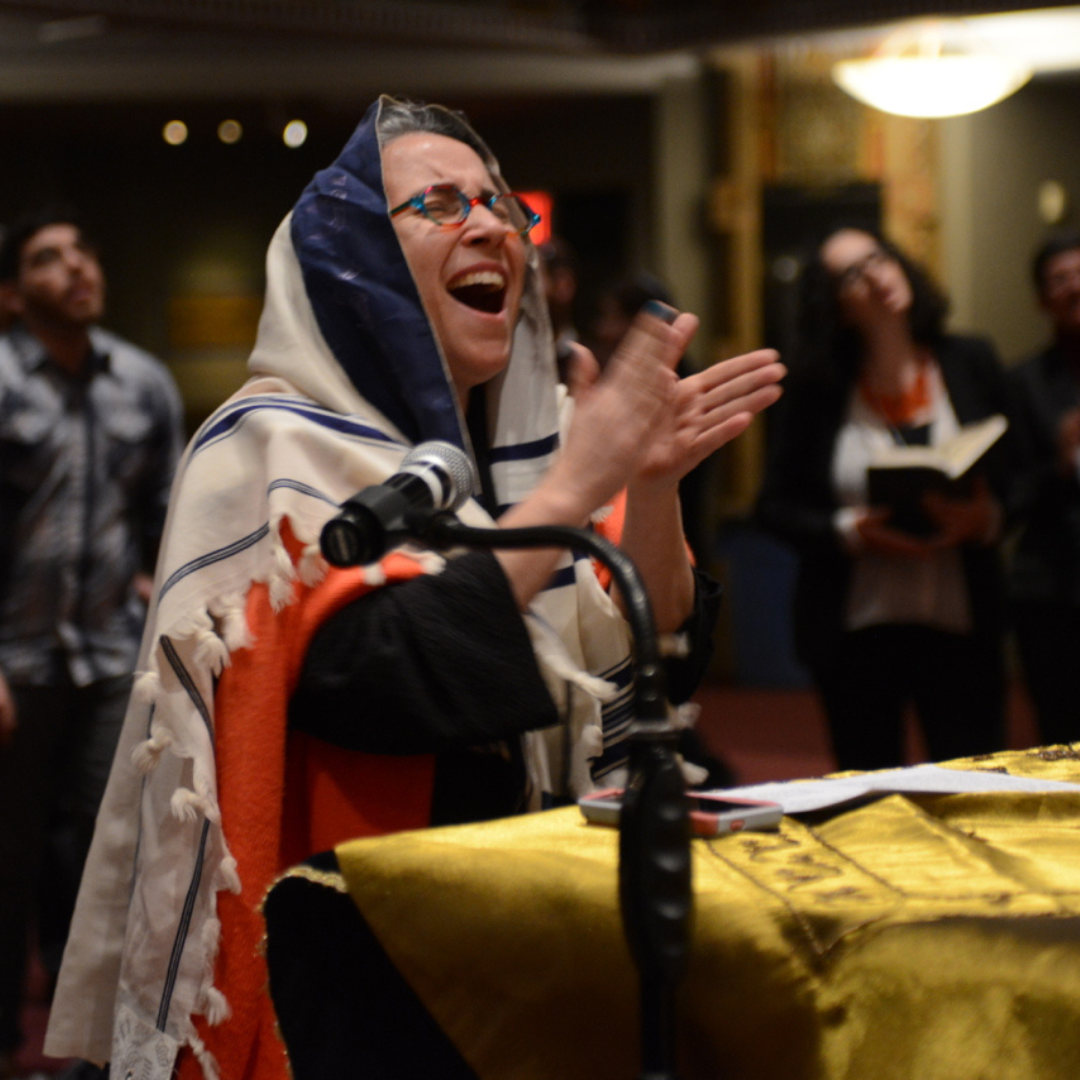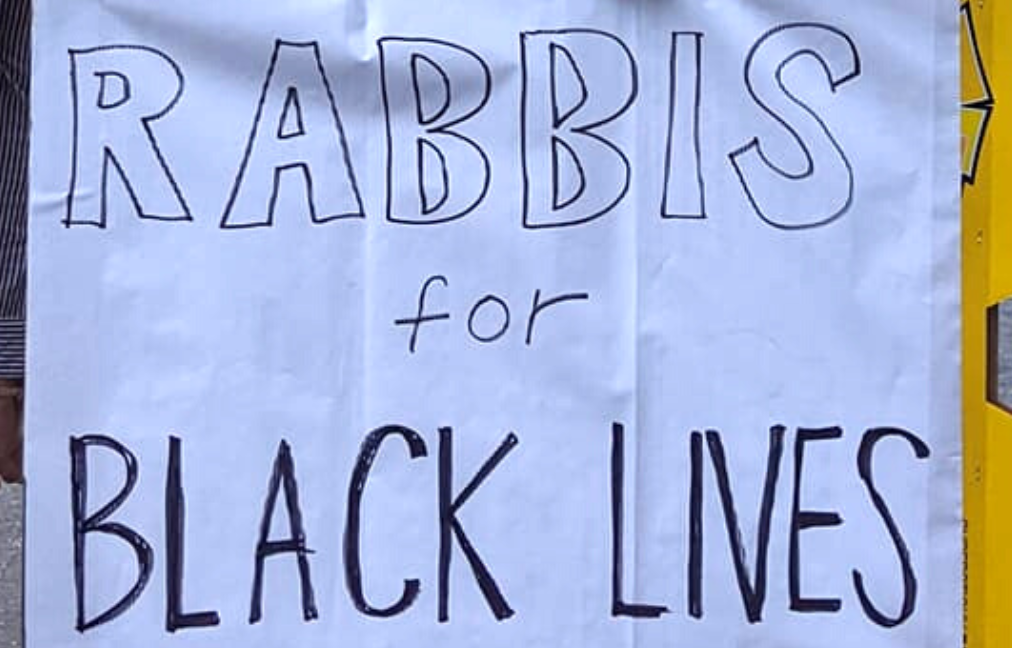Our Mission
T’ruah: The Rabbinic Call for Human Rights brings the Torah’s ideals of human dignity, equality, and justice to life by empowering rabbis and cantors to be moral voices and to lead Jewish communities in advancing democracy and human rights for all people in the United States, Canada, Israel, and the occupied Palestinian territories.
Our Strategies
- We organize rabbis, cantors, and their communities to make an impact through specific human rights campaigns. (Read more about our approach to working in coalition here.)
- We train rabbinical and cantorial students and rabbis and cantors to be powerful human rights leaders.
- We amplify the voices of rabbis and cantors on the pressing human rights concerns of our time.
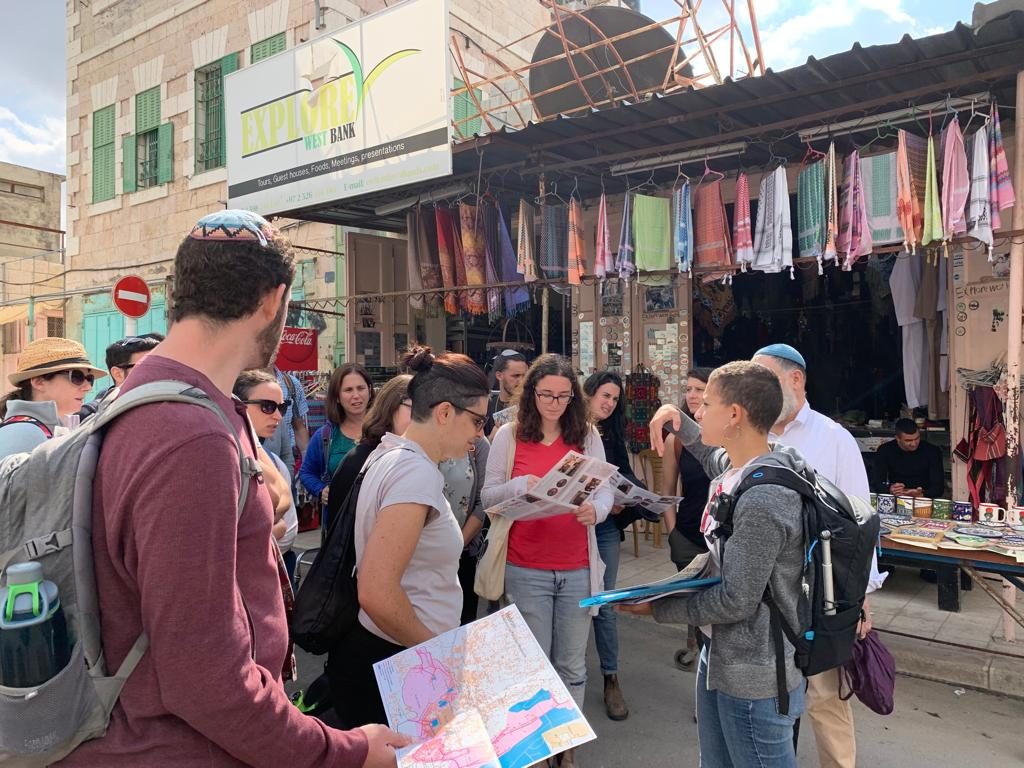
Our Name
The name T’ruah — one of the sounds of the shofar (ram’s horn) — calls us to take action to create a more just world and indicates our belief in the possibility of liberation.
Today, we associate the shofar primarily with Rosh Hashanah and Yom Kippur, when we sound it during synagogue services. The shofar wakes us up, demands that we examine our past behavior, and calls us to action.
In the Torah, the sound of the shofar also heralds the beginning of the Jubilee Year, when debts are forgiven and indentured servants go free. Shofar blasts also announce the beginning of the revelation at Mount Sinai. The shofar, then, symbolizes liberation, as well as the presence of the divine.
The T’ruah blast consists of nine staccato notes. This halting sound reminds us of the brokenness of the world, while also calling us to be partners with God in healing this brokenness.
Our tag line, The Rabbinic Call for Human Rights, speaks to our commitment to placing rabbis and cantors at the vanguard of the Jewish human rights movement. But our call—and our movement—is not for rabbis and cantors alone. Rather, we know that a powerful Jewish human rights movement must mobilize rabbis, cantors, rabbinical and cantorial students, educators, laypeople, and representatives of all parts of the Jewish community.
The word “rabbinic” also indicates that we ground our work deeply in Jewish text and tradition, including the writings of centuries of rabbis, our history, and our communal practices.
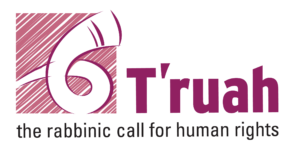
The shofar in our logo reflects our name and calls us to action. The shofar sits on a background of sketch marks. The unfinished look of this background symbolizes the unfinished state of the world and demands that we each do our part to complete it.
The purple of our logo combines the blue and white of the Israeli flag; the red, white, and blue of the American flag; and the red and white of the Canadian flag. We are Americans and Canadians with deep connections to Israel, and a commitment to making all three of the countries we love the most just, peaceful, and righteous places possible.
Our History
T’ruah: The Rabbinic Call for Human Rights was founded in 2002 as Rabbis for Human Rights-North America (RHR-NA). From the beginning, we have mobilized a multi-denominational network of rabbis and Jewish communities to protect human rights in North America and Israel. We originally acted as a sister organization to the Israeli group Rabbis for Human Rights (RHR). In that capacity, we partnered with RHR on human rights campaigns in Israel and raised millions of dollars to support the RHR’s sacred work, even as we pursued our own campaigns on issues both in North America and in Israel and the occupied territories.
In January 2013, RHR-NA became T’ruah: The Rabbinic Call for Human Rights, ending our formal affiliation and financial relationship with RHR. Our commitment to working equally in North America and in Israel and the occupied Palestinian territories remains the same as always.
T’ruah held the Trump Administration accountable, taking to the streets to protest the appointment of known white supremacist Steve Bannon, the Muslim Ban, and other abuses of power. We mobilized rabbis and Jewish communities across the country to speak out against the administration’s cruel policy of separating children of asylum seekers from their families and succeeded in shutting down Homestead detention center in Florida along with our partners. In Israel, we’ve fought creeping annexation and home demolitions; over 800 rabbis and cantors signed a letter opposing unilateral annexation of the West Bank and our student programs have shown future rabbis the consequences of perpetual occupation.
As COVID-19 created new challenges, we transitioned the bulk of our work online and have organized regular virtual actions and trainings for our chaverim. We offered trainings for our chaverim as Movement Chaplains and Election Defenders to ensure a free and fair election in 2020. Just hours after the Capitol was stormed on January 6, 2021, we responded with a virtual event that offered community and an opportunity to take action for democracy. Over 600 people attended.
In 2021, we began offering our chaverim the opportunity to join Communities of Practice, which bring together rabbis and cantors to learn and build relationships in affinity groups around a shared topic of concern. Recent Communities of Practice have included: assistant/associate rabbis, immigration, working in a red state, (re)thinking Zionism(s), racial justice, and more.
We have doubled down over the last several years on our local organizing in New York City, Westchester, and Massachusetts, bringing rabbis and cantors into coalitions fighting against racist sentencing laws, advocating for community-based solutions to public safety, working to ban solitary confinement, and striving for equitable housing for all.
We have responded to a far-right extremist government in Israel by standing with Israelis calling for the protection of democratic norms. We have amplified our calls for the U.S. government to uphold its stated goals and ideals by pressuring Israel to maintain an independent judiciary and to work toward ending the occupation.
In fall 2022, we launched Emor, the Institute for Bold Jewish Thought. Emor is bringing together people from all corners of the Jewish community to ask big questions, study Jewish texts, and hold courageous conversations about today’s most important moral and political issues.
Whatever the future holds, we will continue to be a moral voice, insisting on the physical safety and dignity of every human being.
Our Values
T’ruah’s values drive everything we do in the world. Each of our values is rooted in Jewish text and tradition, which have guided and sustained our people for thousands of years. We live these values passionately and steadfastly, both in joyous celebrations and in the most difficult moments. These values are both experienced and aspirational. They compel us to elevate our work beyond the interests of an institution, beyond our individual egos, and beyond a transient news story. They guide us in our every interaction — both with those within our organization and with those beyond it — and are embodied in our policies, in our mode of working, and in our impact on the world.
Dignity of every human being (Tzelem Elohim)
We strive to relate to every single person with the dignity, respect, compassion, and joy befitting creations in the divine image, each with infinite worth. This includes being an anti-racist organization that works to dismantle the systems that violate human dignity, and to replace these with systems of righteousness.
Justice (Tzedek)
We are guided by the Jewish obligation to build equitable structures and systems that protect and advance the human rights of all people.
Integrity (Yashrut)
We ground our work – both inside our organization and in our engagement with others – in honesty, truth, responsibility, fairness, accountability, and unwavering adherence to our principles.
Moral Courage (Ometz Lev)
Deriving fortitude from the wisdom of our tradition and the history of the Jewish people, we call upon our deepest strength to take risks, to speak uncomfortable truths, and to stand up to the forces that seek to weaken and dim the light of justice in the world.
Relationship (Chavruta)
We believe in relationship before task. Externally, this means working in partnership with organizations led by those most affected by the issues at hand. Internally, this means seeing our colleagues as whole persons, who we support and nourish on a daily basis. We do not do our work alone.

